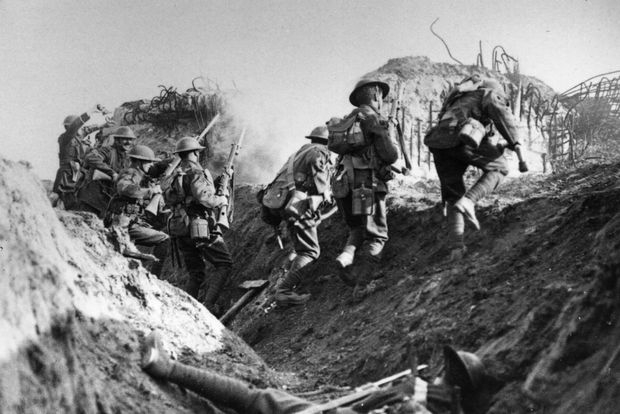From ‘News of the Week’, The Spectator, 19 June 1915:
In the British section of the western theatre of war our troops have taken the offensive to the west of La Bassée and to the east of Ypres. In the La Bassée district on Tuesday evening they won several trenches, but these trenches were retaken that night by strong counter-attacks of the enemy. Near Hooge, however, two miles east of Ypres, we gained a considerable piece of ground and have held it. The Germans allege that at La Bassée four English divisions, or nearly seventy thousand troops, took part in the advance, and suffered very heavy losses. but “Credat Judeas Apella” say we. Heavy losses no doubt there have been, but we shall want much better evidence in regard to these seventy thousand troops. People who are “jumpy” are always attacked by “thousands upon thousands of men.”
In the Dardanelles we are not only holding our own, but the activity of the German submarines appears to have abated. It seems indeed admitted now that we shall have no difficulty in maintaining our ground, and, further, that the Turks are suffering a great many losses by the attrition of war, losses which they find it exceedingly difficult to make good. But though this is true, and though in all proba bility there is a good deal of disaffection and disappointment in Constantinople, it would be most foolish to lay too much stress u pon the suggestion that Turkey will soon sue for a separate peace. There are tendencies in that direction, but it will probably take a long time for them to come to fruition.
In the House of Commons on Thursday week there was a debate on the considerable rise in the cost of living. Mr. Runciman, in replying for the Board of Trade, said that no rise had given the Government more anxiety than that in the price of coal. Coal was not like wheat, since its price was very little dependent on the world’s production. Undoubtedly the cost of working coal had increased, and it should be remembered that two hundred thousand miners had enlisted. At the same time, the price which had been charged throughout the winter, and which had not appreciably fallen, was excessive. He was in negotiation with the mine owners, and had nearly come to an agreement with the Midland owners as to a reasonable price. As for wheat, the high prices bad not been due to speculation in this country. The American price controlled the world’s price. Argentine wheat had been diverted from Britain. Australia, for example, had become an importing country. We were at one time “faced with a definite shortage,” but the risk of famine prices had been staved off. In buying frozen meat for the Army the Government also bought for the French Army in order that the two nations might not raise Argentine prices by competitive buying. He could not hold out any hope that our meat supplies would be largely increased during the war.






Comments